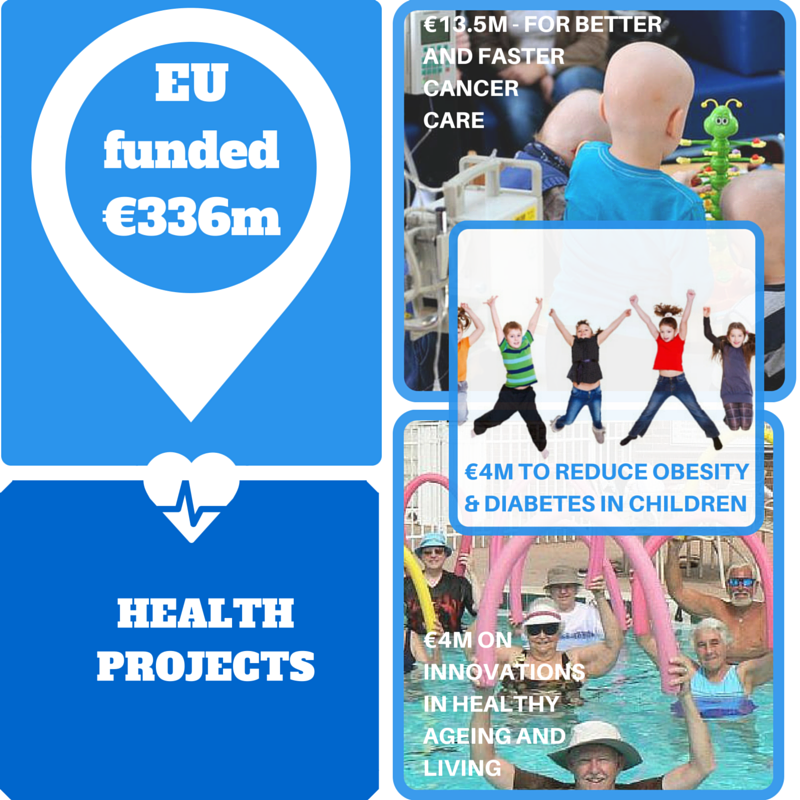Funding from Europe has contributed significantly to Birmingham and the West Midland’s research and innovation into solving very important health conditions affecting millions of people across the world.
The picture on the left shows figures allocated to three EU funded health projects undertaken in Birmingham.
FP7 research programme, now replaced by Horizon 2020 programme, covered not only health, but also technology, transport and many further areas, engaging all Midlands universities and opening up vast collaboration opportunities.
A recent partnership agreement between the University of Birmingham and the European Commission’s Joint Research centre (JRC) making it possible for the UoB to formally be a decision-maker at a European level.
The programme has also attracted world class researchers to Aston University and provided prospects of follow-on research.
FP7 also funded the following projects:
- ENNCA – a joint project with the University of Birmingham directly influenced the efficiency and accelerated the delivery of treatment to children diagnosed with cancer, facilitating collaboration between all important stakeholders (doctors, researchers, legislators, drug manufacturers etc.)
- Promoting adolescent health through an intervention aimed at improving the quality of their participation in physical activity (PAPA) scheme, distinctive through its universality, as it encouraged thousands of children to lead a more physically active life, regardless from their Body Mass Index.
- Knowledge Innovation Community (KIC) funded the initial stage of the Healthy Living and Active Ageing project, whose aim is to help local businesses deliver innovative healthcare services and products and thus to solve the issues of ageing population and unhealthy lifestyles.
Plans for the future…
Horizon 2020 scheme offers a pot of €80 billion specifically designed to boost innovation locally as the programme’s particular focus will be on local SMEs.
The Healthy Living and Active Ageing project will continue, eventually contributing €2 billion to innovations development in healthcare sector and to creation of new products and jobs. The targets of this project are set at
- 90 new products and/or services annually by 2018
- 70 new start-ups per year by 2018
- 1,000,000 students joining its educational online programmes annually
- 220 new business ideas by 2018.





